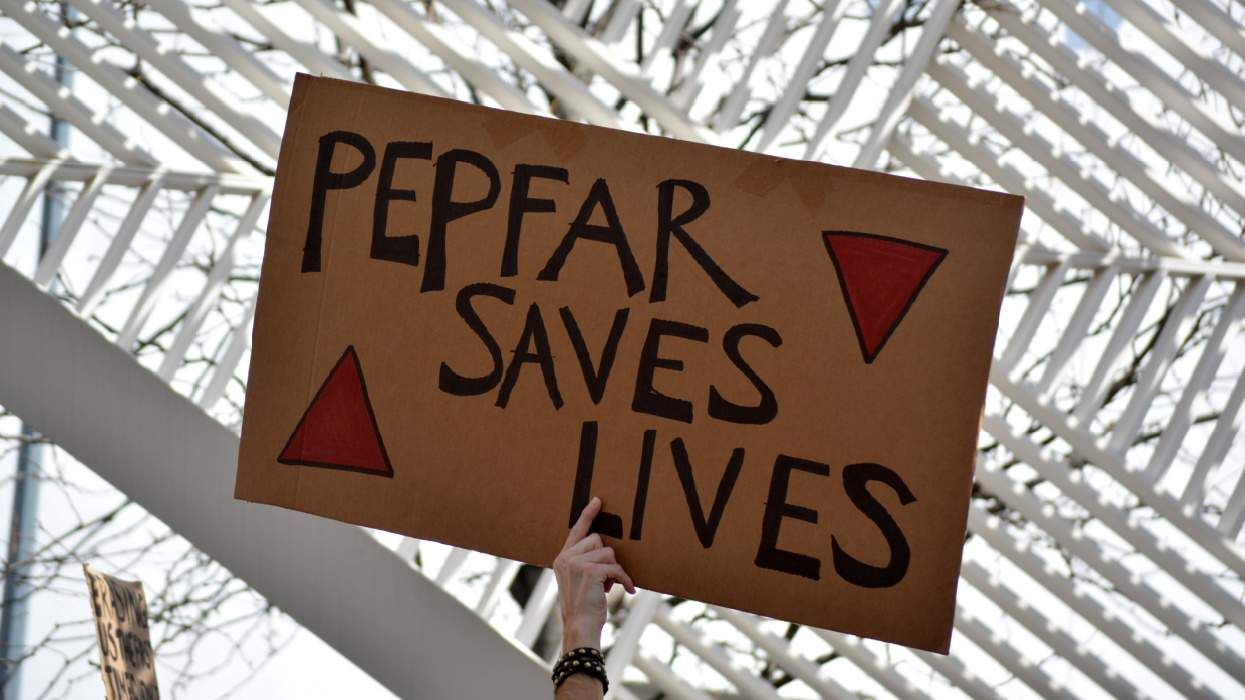A transgender woman of color incarcerated in San Francisco County Jail has refused to eat for 37 days -- and plans to continue her hunger strike until she is housed with women.
Athena Cadence, 29, a trans woman of color and a U.S. combat veteran, was arrested last November for misdemeanor assault, according to S.F. Weekly. She is currently being held in a private cell away from other inmates -- and has not eaten since June 1.
Transgender Law Center staff attorney Shawn Meerkamper is in regular contact with Cadence and is helping to monitor her general well-being.
"[She is] remarkably strong and clear-headed, given how long she's gone without food," Meerkamper, who uses the gender-neutral pronouns they/them, told The Advocate.
But that doesn't mean Cadence hasn't struggled with the fallout from her act of protest. After initially going nine days without food or fluids, Cadence was hospitalized, Meerkamper says. When she returned to the jail, the attorney said, Cadence refused to be strip-searched by a male guard and was therefore forced to spend a night in a holding cell with no bed. A female guard searched Cadence the following day and returned her to her private cell.
At press time, Cadence continues to take fluids, but she has refused solid food for 37 days. Meerkamper said they have met with county jail officials and made marginal progress on revising the jail's housing policies, noting that Cadence's actions had "a tremendous impact in showing the urgency of these issues and moving things forward." However, no timeline for implementation of those new policies has been announced.
Cadence was still a free woman when San Francisco County first announced its plans last September to begin housing transgender inmates according to their gender identity. However, the San Francisco County Sheriff's Department -- which runs the jail where Cadence is being detained -- has been slow to actually implement the policy. Trans women are currently housed in a unit separate from both cisgender (nontrans) men and cisgender women.
The overwhelming majority of jails, prisons, and immigration detention centers house inmates based on gender assigned at birth or the appearance of a person's genitals. Regardless of where they are housed, many transgender prisoners are placed in "protective custody" -- also known as solitary confinement -- allegedly for their own protection.
There has been some progress made at the federal level -- most notably the 2012 reauthorization of the Prison Rape Elimination Act, which requires jails and prisons that receive federal funds to make determinations about housing for transgender inmates on a "case-by-case basis" and not solely by the inmate's visible sex organs. The Justice Department further clarified those guidelines earlier this year when it confirmed that officials may not use an inmate's sex as assigned at birth as the sole determinant for gendered housing.
The hostile environment that is still facing Cadence and countless other transgender people who are currently incarcerated is precisely what San Francisco's Transgender, Gender-Variant, and Intersex Justice Project has been working to raise awareness about.
In a press release issued just before San Francisco Pride, the advocacy group takes the San Francisco County Sheriff to task:
"Six months into her time in office, Sheriff Vicki Hennessy has repeatedly missed deadlines set by the city and community leaders to implement a policy that respects the safety and gender self-determination of TGI folks held behind bars."
When contacted for comment on Cadence's hunger strike, San Francisco Sheriff Chief of Staff Eileen Hirst said that Cadence's condition is "being monitored closely by both jail medical services and custody staff," but could not comment further, citing privacy regulations.
Hirst further noted that work on implementing the new trans housing policy has been under way since January 8, when Sheriff Hennessy took office. But housing trans people by their gender identity requires changes to nearly every aspect of jail operations, she says, which have been "segregated by birth [assigned] sex for centuries." Additionally, Hirst indicated that former Sheriff Ross Mirkarimi's administration had done little work to implement the new policy, despite announcing it last year.
While declining to discuss precise timelines, Hirst insisted that "this policy will be implemented, there's no doubt about that."
Hirst did provide The Advocate with a copy of a memo she said Hennessy issued to the entire Sheriff's Department discussing the upcoming policy changes. The memo, dated June 23, addressed staff searches of trans and gender-nonconforming inmates.
"While transgender and GNC individuals make up a very small part of our jail population, we have an obligation to protect everyone and to be sensitive to the conditions of confinement that may negatively affect them," Hennessy wrote. She went on to note that having inmates searched by an officer whose gender identity matches their own is "considered a best practice by the National Center for Transgender Equality," but also that "current departmental policy" remains in place, which declares that "the genitalia of the individual are the basis for determining the gender of the deputy performing a strip search."
In the event that a transgender inmate requests that a search be done by a guard with the same gender identity, Hennessy's memo indicates that a supervisor will be called to assess the situation. "If the request appears appropriate, the supervisor may ask for a volunteer to accomplish the search," the memo continues. "In the event there are no volunteers, the existing policy will be followed."
The final page of the memo includes a brief training bulletin that advises Sheriff's Department staff to address all trans and gender-nonconforming inmates by the name and pronouns they prefer -- and to ask for clarification if they are unsure. "Derogatory remarks" are identified as inappropriate.
Cadence has vowed to continue her hunger strike until the county's policy is changed and she is housed with women.



































































Charlie Kirk DID say stoning gay people was the 'perfect law' — and these other heinous quotes